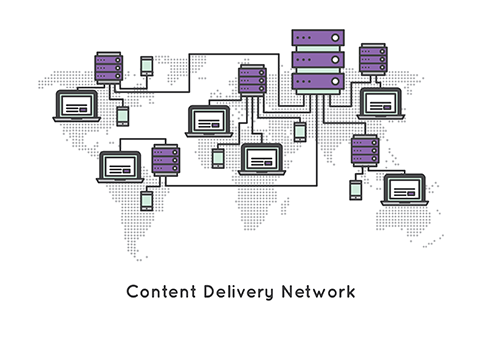How to Setup CDN for Website: The Most Googled Question

If you’re big on SEO, then there’s a chance you know for sure that the phrase “how to setup CDN for website” has been searched multiple times online. It makes sense, though, because Content Delivery Networks have never been bigger until today. They’re a huge component of why so many digital companies remain to be what they are now. Netflix, Amazon, Twitter, Facebook, BuzzFeed, and every other huge company that exists in the world wide web uses them.
For this article, specifically, we’ll base our steps on one of the country’s, fastest-rising CDN providers—belugaCDN; so without further ado, here’s how to setup CDN to your sites:
Step 1: add the domain name
The first step involves logging in to the user interface or using BelugaCDN’s API to create a new website property.
Step 2: direct the domain to the BelugaCDN network
This part should be easy. Simply click on the DNS instructions link to change
Step 3: You’re good to go
You’re done. It’s that simple. At this point, all API features should be available and your site should now be integrated into the BelugaCDN network.
Is a CDN important for business?
Here’s a more basic question for beginners. Is CDN really important? The quick answer here is “it depends.” Like everything else on the internet and in general life, there is no one-size-fits-all approach to anything. Often, CDNs benefit sites that generate medium to high traffic the most. CDNs also improve sites that have a strong foreign following. If you run a site from Germany and you have tons of readers from, say, India, maybe it’s time to use one.
What’s a CDN?
To appreciate a CDN in all of its entirety, it’s important to understand that a CDN is a group of servers evenly distributed to several parts of the world to efficiently send data and media to a site’s global audience. Think of it as a group of basketball players standing far from each other. The more players there are in between, the more effectively a ball is passed from one end to another.
This not only guarantees speed, but it also improves the overall digital experience. And in a world filled with impatient people who consume things instantly, how fast something materializes is a massive deal.
How CDN works
In case you still didn’t know, the internet can be as large as the ocean. It’s pretty massive. When your site runs only on the origin host, it takes a while for users far from where your origin host is to consume your media. Here’s another example: let’s say you run your site from Ontario, Canada. Every time visitors from, say, New York or New Jersey visit your site, chances are very high that the speed is quick and loading time is barely noticed. But when someone from Jakarta opens your website, the request they make will have to travel to Canada. This can mean those from Jakarta will have to wait a few seconds longer to access your site. The longer it takes for your site to load, the more likely they are to close the tab and browse something else. This in itself can cost you a lot of money.
Understanding CDN nodes
Four crucial nodes contribute to the success of efficient and secure browsing:
Storage
This node takes care of the data. Here, a site’s content is cached and saved in delivery nodes.
Delivery
This node stores updated data and delivers the content to its nearest users.
Control
Perhaps you can say these are the busiest of all (although technically all nodes are constantly at work) because these nodes are the systems that track the movement of content. These equipment manage routing, hosting, and monitoring.
Origin
As the name implies, this is where the original content is saved. This node is the first that’s updated every time you change or add anything on your website.
Conclusion: should my brand invest in a CDN?
the industries that CDNs impact the most are ones that belong in the media, e-commerce, and banking. If your site is growing and you’re determined to widen your global audience, it’s best to be prepared. But if your site caters to a very particular and local community very approximately near your origin web host, working with a CDN provider might not be the best idea.
For more information about how CDNs can help expand your business reach, reach out to one of the fastest rising CDN providers today! Learn more about BelugaCDN now!
Power-up your Content Delivery
30 Day Free Trial Cancel Anytime